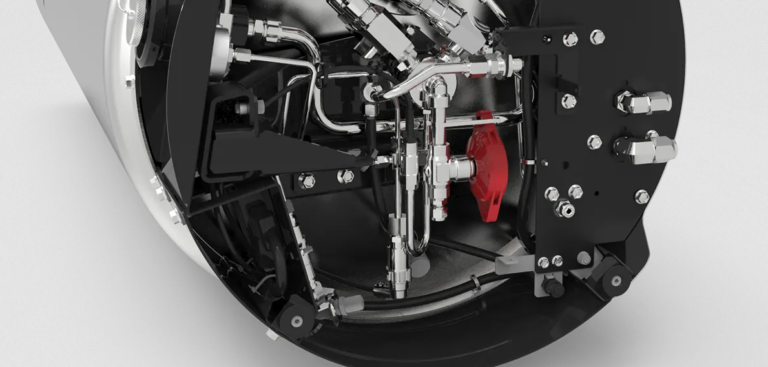Westport Fuel Systems, a Vancouver, British Columbia-based developer of alternative fuel, low-emissions transportation technologies, has revealed its H2 HPDI fuel system in a demonstrator truck. Westport’s states that the technology enables heavy-duty trucks to operate on bio-methane (renewable natural gas) and natural gas with the same power, torque, efficiency and performance as diesel engines, and with even better results running on hydrogen, all while meeting global emissions regulations.
The H2 HPDI fuel system has been fitted to a fully functional demonstrator vehicle and the company states it can facilitate up to 98% CO2 reduction over diesel, and enables manufacturers to leverage their investment in vehicle drivetrain design, supply chain and manufacturing by continuing to plan around low-carbon hydrogen internal combustion engines.
“We believe H2 HPDI is compelling, with near-zero greenhouse gas emissions at a lower cost than fuel cell vehicles or battery electric vehicles, particularly for heavy-duty, long-haul trucking,” said David Johnson, CEO, Westport Fuel Systems. “We have developed the engine to utilize the capability of HPDI to deliver what is needed today in the marketplace, using hydrogen in place of natural gas, with development work happening at Westport Fuel Systems facilities, and through previously announced programs with AVL/TUPY and Scania. And we expect new H2 HPDI programs with other partners to come soon.”
The HPDI fuel system uses compression ignition combustion with the overwhelming majority of the energy derived from the combustion of, typically, a gaseous fuel. Combustion is initiated via late cycle direct injection of a small quantity of pilot fuel, followed by direct injection of the primary gaseous fuel; both fuels are injected via a proprietary dual concentric needle injector design. By utilizing diesel-cycle thermodynamics, the HPDI fuel system retains the thermal efficiency, power, torque and engine braking of the base diesel internal combustion engine.
“HPDI has long been established as matching diesel engine performance, and efficiency, and now we have demonstrated power, torque and efficiency significantly exceeding that of the diesel base engine by migrating from Natural Gas HPDI to H2 HPDI,” said Scott Baker, vice president of Engineering, Westport Fuel Systems.
“The advantage of HPDI combustion is that it retains the high compression ratio of the base diesel engine and does not suffer from engine knocking as the H2 is injected toward the end of the compression stroke just after pilot ignition and combustion begins.”


